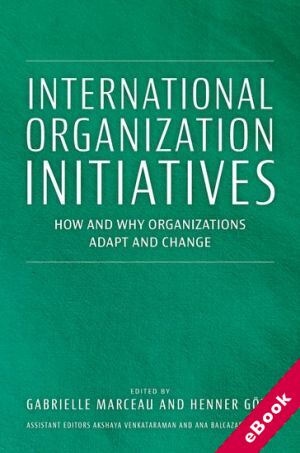
The device(s) you use to access the eBook content must be authorized with an Adobe ID before you download the product otherwise it will fail to register correctly.
For further information see https://www.wildy.com/ebook-formats
Once the order is confirmed an automated e-mail will be sent to you to allow you to download the eBook.
All eBooks are supplied firm sale and cannot be returned. If you believe there is a fault with your eBook then contact us on ebooks@wildy.com and we will help in resolving the issue. This does not affect your statutory rights.
How do changes in international organizations (IOs) come about? How do IOs adapt to respond to crises and unforeseen needs of their members, and what roles do the secretariats, and their heads play in this process? International Organization Initiatives deals with these questions and shows how IOs, their secretariats and executive heads launch and implement innovative activities. It sheds light on both proactive and reactive approaches to institutional evolution.
Bringing together distinguished scholars of international organizations and experienced practitioners, this volume showcases and investigates IOs' adaptive capacity, their achievements, and limitations. "Through case studies and conceptual frameworks, the book explores a largely uncharted world of IO evolution to which international secretariats contribute significantly. The collection of chapters brings to light the mechanisms used in the past by IOs to adapt to what were, on each occasion, new challenges to their efforts to assist and respond to unprecedented needs of their members faced with new realities.
International Organization Initiatives is a valuable resource for both scholars and practitioners interested in IOs and their capacity for change in response to global crises, members' demands, internal impulses or interactions with the outside world. Providing an in-depth look at governance model transformations and institutional innovations, it offers a collective wealth of knowledge and insights, along with lessons for future global governance.